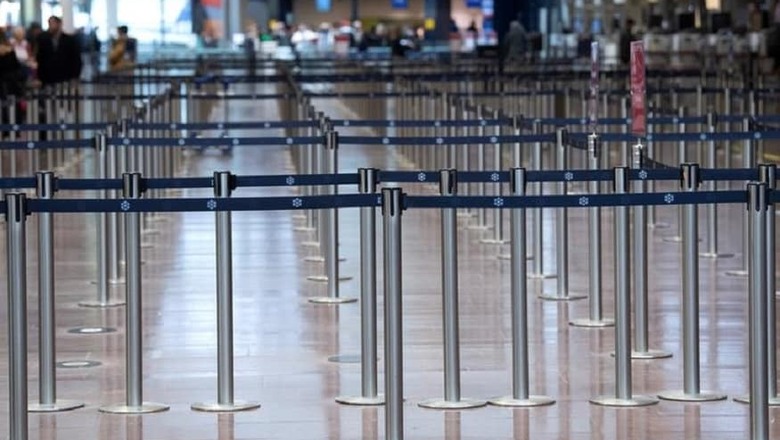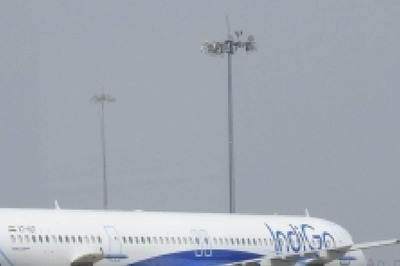
views
Sydney: Airlines and airport operators said they are taking steps such as suspending dividends, selling and leasing back airplanes and flying cargo on empty passenger jets as they grapple with a cash crunch and plunging demand caused by the coronavirus outbreak.
"It's now fair to call this the single biggest shock that global aviation has ever experienced," Qantas Airways Ltd Chief Executive Alan Joyce said in a memo to the airline's 30,000 staff on Tuesday.
The Australian carrier announced plans to cut international capacity by 90% and domestic capacity by 60% until at least the end of May, grounding the equivalent of 150 planes in response to new travel restrictions.
"Our goal is to protect as many jobs as possible and to make sure we remain strong enough to ride this out," Joyce told staff in the memo seen by Reuters.
New Zealand's Auckland International Airport Ltd said it would scrap its interim dividend on top of cost-cutting measures that include a hiring freeze and a halt to discretionary spending.
Air New Zealand Ltd announced on Monday it would cut capacity to Australia by 80% from March 30 to June 30 after both countries said over the weekend that all travellers would need to self-isolate for 14 days after arrival.
Qantas last week told analysts it was looking to raise a few hundred million dollars by refinancing some of its aircraft.
Hong Kong's Cathay Pacific Airways Ltd said on Monday it had agreed a $703.8 million (576 million pounds) deal with lessor BOC Aviation Ltd to sell and lease back six Boeing Co 777-300ER airplanes to raise much-needed cash.
The carrier, one of the earliest and hardest hit by the outbreak due to its proximity to mainland China, said its full-service airlines, Cathay Pacific and Cathay Dragon, had made an unaudited loss of HK$2 billion ($257.5 million) in the month of February alone.
Cathay Pacific will cut up to 90% of its capacity in April, up from an earlier plan of 65% announced alongside its annual results last week.
"If we do not see a relaxation of travel restrictions in the near future, we expect the same arrangement will have to continue into May," Cathay Pacific Group Chief Customer and Commercial Officer Ronald Lam said in a statement.
"Our advance passenger bookings show no clear signs of recovery at this stage, and the gap in bookings compared to 2019 continues to widen," he said.
CARGO BRIGHT SPOT
The only bright spot for the airline is the cargo market, where rates are surging as a result of the loss of capacity in the belly of passenger aircraft as those flights are cut.
Cathay Pacific and Korean Air Lines Co Ltd are both flying some planes without passengers to transport cargo due to high demand.
Qantas said it would use some domestic passenger aircraft for freight-only flights to replace lost capacity from regular scheduled services and its fleet of freighters would continue to be fully utilised.
Freight Investor Services on Monday reported a surge in prices across all Asia-Pacific routes. "2020 is fast becoming year of the freighter," it told clients.
Singapore Airlines Ltd reported a higher cargo load factor in February than the prior year, but said on the passenger side, market conditions had continued to deteriorate in March.
Carriers in Europe and the Americas are struggling too.
Major U.S. airlines sought a government bailout of more than $50 billion as the White House is urgently drafting a financial assistance package in the wake of the steep falloff in U.S. travel demand sparked by the coronavirus pandemic.
A trade association warned that without action airlines could run out of money by year-end - and even sooner if credit card companies started withholding payments. Without action soon, airlines and others in the sector could furlough tens of thousands of workers.
In Europe, already battered shares in British Airways parent IAG, easyJet and Air France-KLM plunged again on Monday as they scrapped most flights for the coming weeks, joining other major carriers that are all but halting operations in the face of the pandemic.




















Comments
0 comment